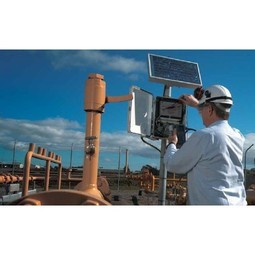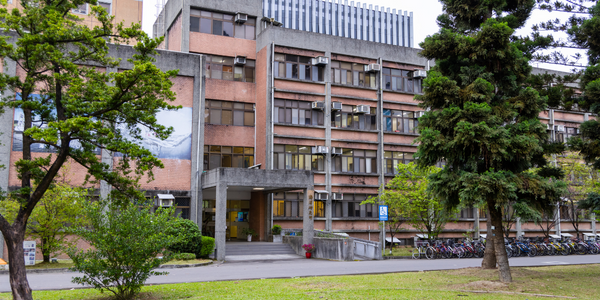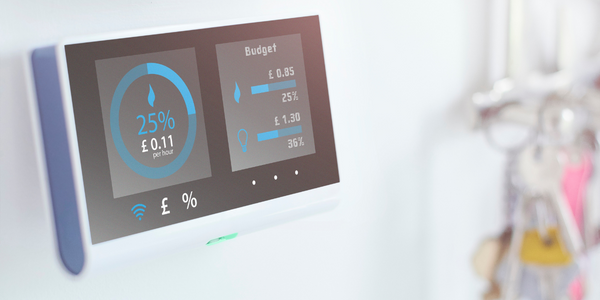技术
- 基础设施即服务 (IaaS) - 私有云
- 平台即服务 (PaaS) - 应用开发平台
适用行业
- 建筑物
- 公用事业
用例
- 添加剂制造
- 网络安全
服务
- 云规划/设计/实施服务
- 系统集成
关于客户
溯高美索克曼 (Socomec) 是一家拥有百年历史的家族企业,总部位于法国,提供创新的电力解决方案。该公司拥有超过 3,600 名员工、12 个制造基地以及超过 28 家子公司。溯高美索克曼的边缘和云解决方案被世界各地的企业所使用。该公司专门提供低压能源装置,从设备到监控,其中能源至关重要 - 为数据中心、太阳能发电厂、公用事业和医院等建筑提供强大且超可靠的解决方案。作为能源转型的积极参与者,溯高美索克曼专注于能源效率、可再生能源、智能电网和智能建筑。
挑战
溯高美索克曼 (Socomec) 是一家拥有百年历史的法国公司,专注于创新电源解决方案,致力于通过实施日益复杂和精密的电源设置为其客户创造额外价值。该公司的专长是为数据中心、太阳能发电厂、公用事业和医院等关键能源建筑提供低压能源装置。然而,仅仅满足客户的电力需求对于溯高美索克曼来说还不够。该公司旨在提供解决方案,使客户能够将其业务提升到新的绩效和效率水平。这需要实施复杂的电源设置和服务,涉及治理、项目管理、变更管理、架构、集成和网络安全等详细流程。为了实现这一目标,溯高美索克曼决定与一个由专家和合作伙伴组成的开放生态系统合作,使其能够将内部资源集中在其核心能力上。
解决方案
Socomec 与 Altair 合作,利用其专业知识集成和部署 IoT 解决方案,从而增强 Socomec 的产品和服务。 Altair 提供了 SmartWorks™ 平台,这是一个开放平台,其功能可通过 API 访问,以方便应用程序开发。该平台可以安装在私有云中,并且具有可扩展性,可以处理未来的大量数据。 SmartWorks 平台托管在 Socomec 自己的私有云中,并用作为 Socomec 客户构建互联服务的加速器。这种合作伙伴关系将溯高美索克曼从一家制造企业转变为一家以服务为导向的解决方案提供商。 Socomec 已经为客户完成了面向未来的项目,包括使用 SmartWorks 平台在云中连接不间断电源 (UPS)。溯高美索克曼服务位于平台之上,可通过移动应用程序使用,从而使客户能够实时访问和了解 UPS 状态。
运营影响
数量效益

Case Study missing?
Start adding your own!
Register with your work email and create a new case study profile for your business.
相关案例.

Case Study
IoT Solutions for Smart City | Internet of Things Case Study
There were several challenges faced: It is challenging to build an appliance that can withstand a wide range of voltage fluctuations from as low at 90v to as high as 320v. Since the device would be installed in remote locations, its resilience was of paramount importance. The device would have to deal with poor network coverage and have the ability to store and re-transmit data if networks were not available, which is often the case in rural India. The device could store up to 30 days of data.

Case Study
Automation of the Oguz-Gabala-Baku water pipeline, Azerbaijan
The Oguz-Gabala-Baku water pipeline project dates back to plans from the 1970’s. Baku’s growth was historically driven by the booming oil industry and required the import of drinking water from outside of the city. Before the construction of the pipeline, some 60 percent of the city’s households received water for only a few hours daily. After completion of the project, 75 percent of the two million Baku residents are now served around the clock with potable water, based on World Health Organization (WHO) standards. The 262-kilometer pipeline requires no pumping station, but uses the altitude differences between the Caucasian mountains and the capital to supply 432,000 m³/d to the Ceyranbatan water reservoir. To the people of Baku, the pipeline is “the most important project not only in 2010, but of the last 20 years.”

Case Study
GPRS Mobile Network for Smart Metering
Around the world, the electricity supply industry is turning to ‘smart’ meters to lower costs, reduce emissions and improve the management of customer supplies. Smart meters collect detailed consumption information and using this feedback consumers can better understand their energy usage which in turn enables them to modify their consumption to save money and help to cut carbon emissions. A smart meter can be defined in many ways, but generally includes an element of two-way communication between the household meter and the utility provider to efficiently collect detailed energy usage data. Some implementations include consumer feedback beyond the energy bill to include online web data, SMS text messages or an information display in consumers’ premises. Providing a cost-effective, reliable communications mechanism is one of the most challenging aspects of a smart meter implementation. In New Zealand, the utilities have embraced smart metering and designed cost effective ways for it to be implemented. The New Zealand government has encouraged such a move to smart metering by ensuring the energy legislation is consistent with the delivery of benefits to the consumer while allowing innovation in this area. On the ground, AMS is a leader in the deployment of smart metering and associated services. Several of New Zealand’s energy retailers were looking for smart metering services for their residential and small business customers which will eventually account for over 500,000 meters when the multi-year national deployment program is concluded. To respond to these requirements, AMS needed to put together a solution that included data communications between each meter and the central data collection point and the solution proposed by Vodafone satisfied that requirement.

Case Study
Energy Saving & Power Monitoring System
Recently a university in Taiwan was experiencing dramatic power usage increases due to its growing number of campus buildings and students. Aiming to analyze their power consumption and increase their power efficiency across 52 buildings, the university wanted to build a power management system utilizing web-based hardware and software. With these goals in mind, they contacted Advantech to help them develop their system and provide them with the means to save energy in the years to come.

Case Study
NB-IoT connected smart meters to improve gas metering in Shenzhen
Shenzhen Gas has a large fleet of existing gas meters, which are installed in a variety of hard to reach locations, such as indoors and underground, meaning that existing communications networks have struggled to maintain connectivity with all meters. The meter success rate is low, data transmissions are so far unstable and power consumption is too high. Against this background, Shenzhen Gas, China Telecom, Huawei, and Goldcard have jointly trialed NB-IoT gas meters to try and solve some of the challenges that the industry faces with today’s smart gas meters.

Case Study
British Gas Modernizes its Operations with Innovative Smart Metering Deployment
The UK government has mandated that smart meters are rolled out as standard across Great Britain by end of 2020, and this roll-out is estimated to create £14 billion in net benefits to the UK in consumer energy savings and lower energy generation demand, according to the Oxford Economics report, “The Value of Smart Metering to Great Britain.” While smart-metering systems have been deployed in many countries, the roll-out in Great Britain is unique because it is led by energy retailers, who have responsibility for the Electricity and Gas meters. The decision to have a retailer-led roll out was made by DECC (Department of Energy and Climate Change) to improve customer experience and drive consumer benefits. It has also led to some unique system-level requirements to support the unique local regulatory model.







